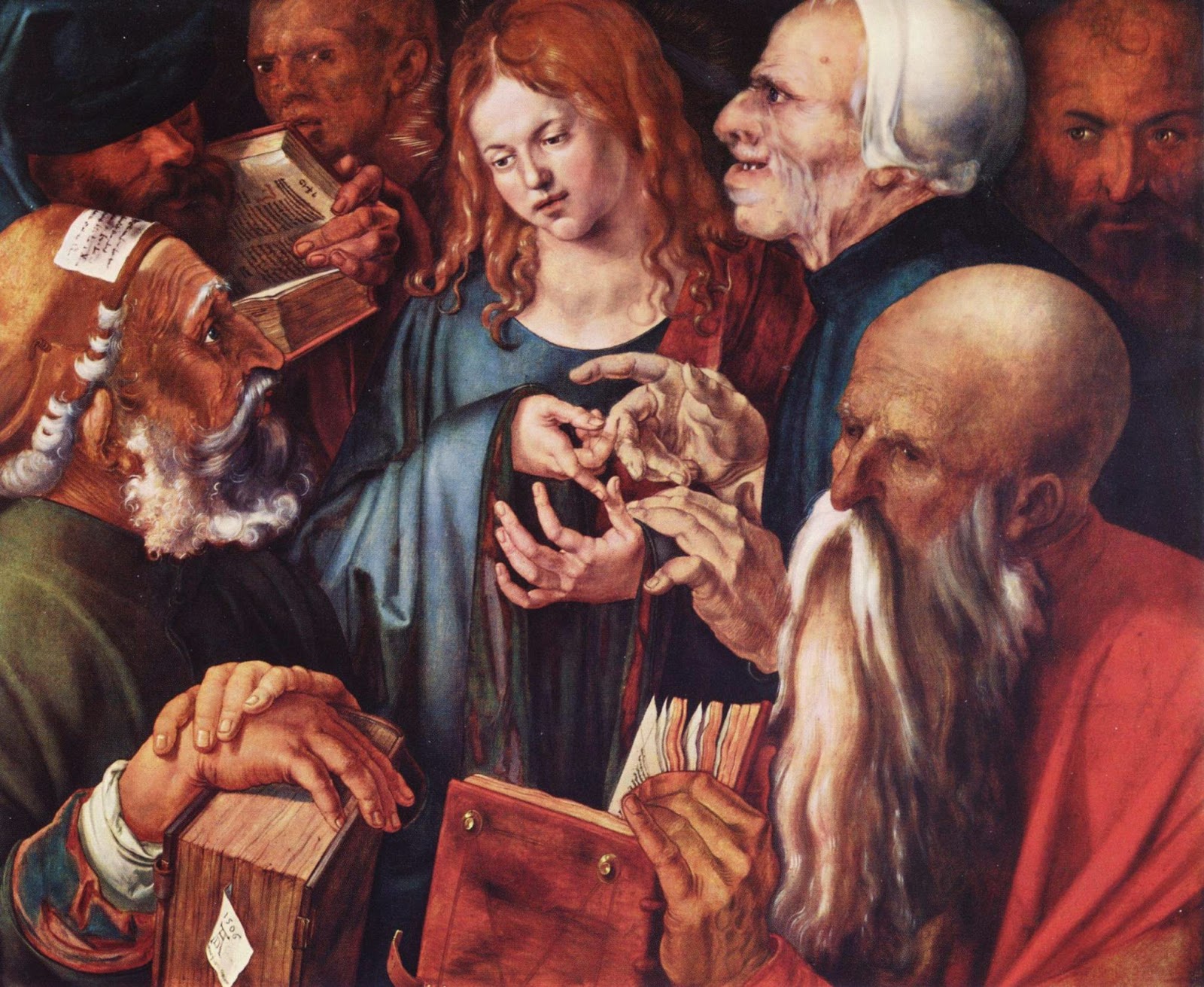2nd
Epiphany
Luke 2:41-52
Every
year his [Jesus'] parents went to Jerusalem for the feast of the Passover. And
when he was twelve years old, they took him with them. Now, after they had gone
there and fulfilled the custom during the days of the feast, they set off on
their way home. But the boy Jesus remained behind in Jerusalem. His parents did
not know this; they thought he was among the company of the travelers. After a
day's journey, they missed him among
their friends and relations. When they did not find him, they returned to
Jerusalem to look for him. William Holman Hunt
After three days, they found him in the Temple, sitting in the midst of the teachers, listening to them and asking them questions. And those who heard him were amazed at his mature understanding and his answers.
And when they saw him, they were taken aback, and his mother said to him, "My child, why have you done this to us? Behold, your father and I have been searching for you in great distress."
William Holman Hunt
And
he said to them, "Why did you look for me? Did you not know that I must be
and live in that which is my Father's?"
But they did not understand the meaning of the words he spoke to them. And he went down with them again to Nazareth and followed them willingly in all things.
And his mother carefully kept all these things living in her heart. And Jesus progressed in wisdom, maturity, and grace [or, favor] in the sight of God and humans.
2nd Epiphany
January
16, 2022
Luke 2: 41-52
At
twelve, the boy Jesus undergoes a great change. Durer
Overnight he is transformed
from a sweet and simple child into a wise and mature young man. His parents don't
know what to make of him. They chide him; he answers innocently, yet with some
surprise, that he thought it obvious where he belonged. At the same time, he
returns with them cheerfully and willingly.
There are nodal points in all our lives, points where something shifts. Something new emerges; the old dissolves, and the new consolidates. It happens to us; it happens to those we love and think we know, even to adults.
This reading gives us two lessons: the first is that no one stays the same. We all develop (or else we gradually devolve).
Therefore the second lesson is that it is helpful to approach each person we encounter with a kind of open and neutral curiosity—as if we had never met them before, even if we think we know them well. Otherwise, they are trapped in a cage we have made for them, a cage of assumptions and expectations, of disappointments, even of disapproval. Such an open, curious, and unprejudiced practice from the heart supports the other in becoming what they truly are.
With open-hearted curiosity, we can offer them a broad but impartial mirror in which they can see the truth of themselves reflected clearly. We are offering them a form of Christ-love, for He said, 'You shall know the truth, and the truth shall set you free.'*
 |
| Bernardo Luini |
Now
is the time to understand
That
all your ideas of right and wrong
Were
just a child's training wheels
To
be laid aside
When
you can finally live
with
veracity and love.**
*
John 8:32
** Hafiz, "Now is the Time," in The Gift, by
Daniel Ladinsky, p. 160.




















